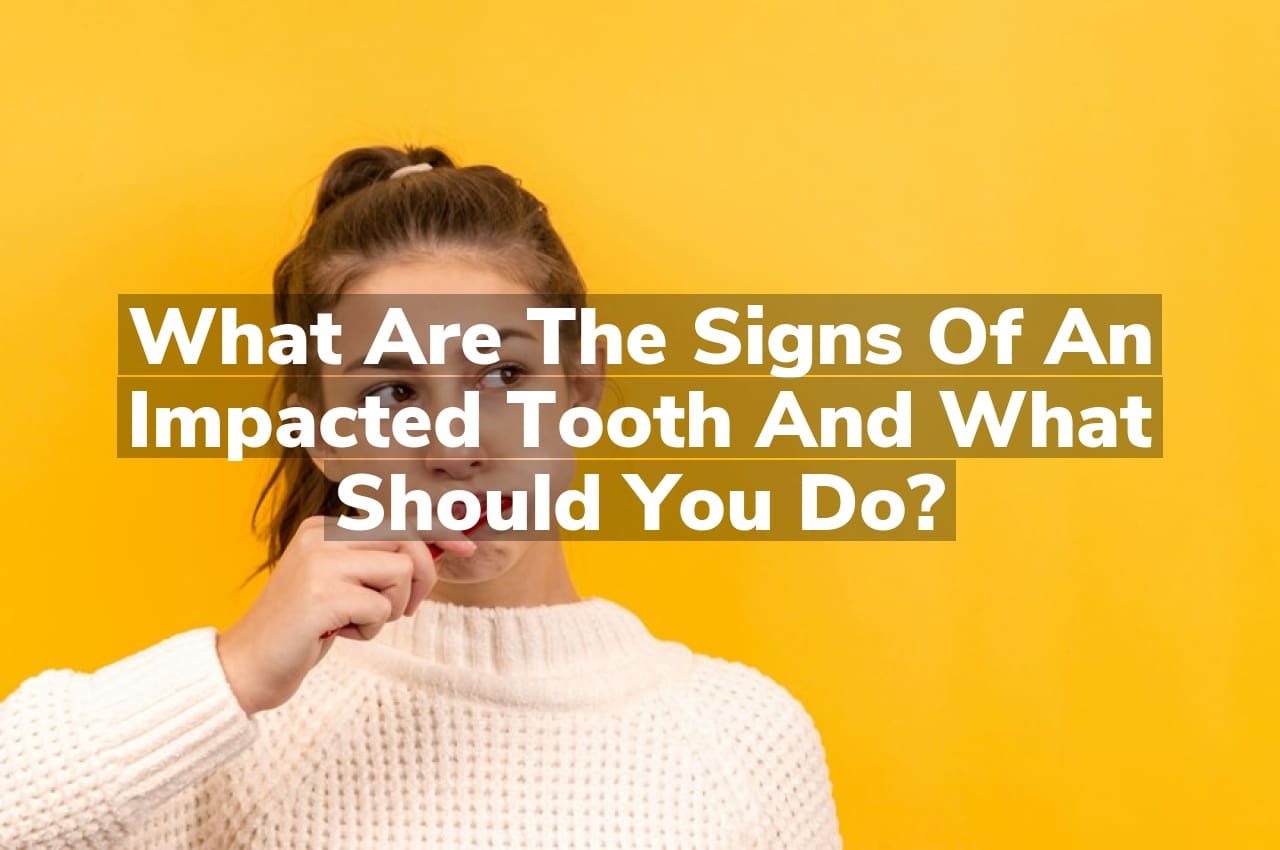Have you ever wondered what the signs of an impacted tooth are, and what you should do if you think you have one? An impacted tooth occurs when a tooth is unable to emerge from the gum line, and it can cause pain, infection, and other dental health issues.
What are the Symptoms of an Impacted Tooth?
Impacted teeth can cause a variety of symptoms, including pain, swelling, and infection. Pain is the most common symptom of an impacted tooth and may be felt in the jaw, face, or neck. Swelling may occur around the affected area, and infection may occur if the tooth is not treated in time. Additionally, impacted teeth can cause difficulty with eating, speaking, and even breathing.
If you experience any of these symptoms, it is important to seek medical attention right away. Early diagnosis and treatment can help prevent further damage to the tooth and surrounding tissues. Innovations in pain management for dental emergencies have made it easier to manage the pain and discomfort associated with impacted teeth. For more information, please visit Innovations in Pain Management for Dental Emergencies.
What Causes an Impacted Tooth?
Impacted teeth are most commonly caused by overcrowding in the mouth. When the jawbone does not have enough space to accommodate all the adult teeth, a tooth may become stuck in the jawbone or gum tissue. Other causes of impacted teeth include: not having enough space for complete eruption of the tooth, the tooth is blocked by another tooth, or the tooth being abnormally angled. Poor dental hygiene habits can also lead to impacted teeth. When plaque and tartar build on the teeth, it can cause the gums to become inflamed and infected. This can cause the teeth to become stuck in the jawbone or gum tissue.
If you suspect you may have an impacted tooth, it’s important to contact a dentist as soon as possible. At New Haven Dental Center Family & Cosmetic Dentistry, our team of can help diagnose and treat the problem. We’ll work with you to determine the best course of action to get your mouth back to its healthy state. Don’t hesitate to reach out for help if you think you may be suffering from an impacted tooth.
How is an Impacted Tooth Diagnosed?
If you suspect you may have an impacted tooth, it is important to seek professional advice from your dentist. They will carry out a thorough examination of your teeth, gums, and jaw to determine if there is an impacted tooth present. X-rays may also be taken to get a better look at the area and help to identify the exact location and degree of impaction. Your dentist may also recommend other tests, such as a CT scan, to help diagnose the issue.
Treatment Options for an Impacted Tooth
If you are experiencing the signs of an impacted tooth, it is important to seek the advice of a qualified dentist. Treatment options for an impacted tooth can vary depending on the severity of the situation and your individual needs. Your dentist may recommend a surgical procedure to remove the impacted tooth, or they may suggest a less invasive option such as orthodontic treatment. In some cases, the impacted tooth may be able to be saved with a root canal procedure. No matter the treatment option, it is important to consult with your dentist to determine the best course of action for your specific situation.
Prevention Tips for Avoiding an Impacted Tooth
It is important to take preventive measures to ensure that your teeth remain healthy and free from impactions. Make sure to brush and floss your teeth at least twice a day and visit your dentist regularly to keep your teeth and gums healthy. Additionally, if you are at risk for an impacted tooth due to overcrowding or misalignment, your dentist may recommend orthodontic treatment to keep your teeth in proper alignment. Eating a balanced diet and avoiding sugary snacks can also help prevent impacted teeth.
Conclusion
If you experience a dental emergency, don’t hesitate to call New Haven Dental Center Family & Cosmetic Dentistry at 260-748-3696 and read reviews here.
